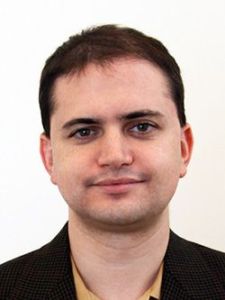
Isaac (Zak) Kohane, MD, PhD is the inaugural Chair of the Department of Biomedical Informatics and the Marion V. Nelson Professor of Biomedical Informatics at Harvard Medical School. He served as co-author of the Institute of Medicine Report on Precision Medicine that has been the template for national efforts. He develops and applies computational techniques to address disease at multiple scales: from whole healthcare systems as “living laboratories” to the functional genomics of neurodevelopment with a focus on autism.
Over the last 30 years, Zak’s research agenda has been driven by the vision of what biomedical researchers could do to find new cures, provide new diagnoses and deliver the best care available if data could be converted more rapidly to knowledge and knowledge to practice. In so doing, Kohane has designed and led multiple internationally adopted efforts to “instrument” the healthcare enterprise for discovery and to enable innovative decision-making tools to be applied to the point of care. At the same time, the new insights afforded by ’omic-scale molecular analyses have inspired him and his collaborators to work on re-characterizing and reclassifying diseases such as autism, rheumatoid arthritis and cancers. In many of these studies, the developmental trajectories of thousands of genes have been a powerful tool in unraveling complex diseases. He is a member of the Institute of Medicine and the American Society for Clinical Investigation

Diane Keogh, Executive Director, i2b2 tranSMART Foundation. Diane has extensive Healthcare IT experience including academic medical centers, community and specialty hospitals, provider networks, industry, and biomedical research with a major focus on developing scalable enterprise strategies and solutions.

Said Tabet, Ph.D., Dell Distinguished Engineer and global lead for Mobility Digital Ecosystem and Digital Twins at Dell Technologies CTO Office. Dr. Said Tabet is a member of the Object Management Group Board of Directors and a member of the Digital Twin Consortium Steering Committee. Said is also a founding member of the program Committee for IoT Solutions World Congress and contributes to several AI, Edge, Digital Mobility, and Digital Twin industrial initiatives. Said serves as a Fellow at the Cloud Security Alliance. Said holds patents in various business and technology areas including Artificial Intelligence, Automotive, Security and Privacy, Regulatory Compliance and Risk management, IoT, Cloud and Edge Computing, Simulation, Hardware Infrastructure, Communications, Distributed Computing, and others. Dr. Tabet is co-founder of Ruel and is a frequent author and contributor to peer-review scientific journals and books.

Paul Harris, Ph.D., Director for the Vanderbilt Office of Research Informatics oversees research data warehousing, data and information management platforms, patient recruitment services, and other enterprise-wide informatics resources. He is founder and faculty lead for REDCap and ResearchMatch. Dr. Harris is PI for the All of Us Data and Research Center and PI for the Trial Innovation Network Recruitment Innovation Center housed at Vanderbilt, both housed at Vanderbilt University Medical Center.

Jeff Klann, PhD., Dr. Klann worked with i2b2 for ten years, developing a research agenda that uses i2b2 as a substrate for data analytics, multi-site research networks, software architecture, data standards, and interoperability. His recent appointment as the Director of i2b2 Core Platform Development will allow him to apply his personal experience in large-scale i2b2 projects to improve the core product. In this position, he hopes to engage the vibrant user community, increase the openness and visibility of the software, and to continue to make the core platform relevant to evolving users’ needs. Dr. Klann is an Assistant Professor of Medicine at Harvard Medical School and in the Massachusetts General Hospital Laboratory of Computer Science. He holds a BS and MEng in Computer Science from MIT and a PhD from Indiana University in Health Informatics. He completed an NLM Research Training Fellowship concurrently with his PhD.

Qi Li, M.D., M.B.A., is a successful healthcare innovator with extensive experience in product inception, research, and global business development. Dr. Li holds the position of physician executive at InterSystems in charge of the product innovation in the areas of real world evidence, life science, research, precision medicine, natural language processing, and artificial intelligence. Dr. Li has held various product leadership roles at Harris Healthcare, Partners Healthcare, and several startup companies in healthcare IT. Previously, as the key person driving the Harris Healthcare global product strategy and sales effort, Dr. Li led the product positioning and market entry efforts in UK and China. At Partners HealthCare in Boston, Dr. Li led the internal development of the Longitudinal Medical Record (LMR) adopted enterprise-wide by 7,000-plus physician users at all primary care and specialty clinics. Dr. Li consulted for Partners Medical International and taught in the China Initiative at Harvard School of Public Health. Dr. Li is on the board of i2b2/tranSMART foundation. Dr. Li is also on the board of MIT Hacking Medicine Institute and advises startups and innovation centers globally. Dr. Li earned his combined M.D. and M.B.A. degrees from Tufts University School of Medicine in Boston, Mass and a bachelor’s degree from University of Southern Maine. Dr. Li also attended Shanghai Jiaotong University before moving to US in 1991.

Bertrand Moal, MD, Ph.D., – Co-founder of DESKi

Shawn N. Murphy, MD, PhD, is the Chief Research Information Officer at Partners HealthCare and a Professor of Neurology and Biomedical Informatics at Harvard Medical School. He completed a fellowship in Medical Informatics at the Massachusetts General Hospital Laboratory of Computer Science, where he currently serves as an Associate Director.
Dr. Murphy developed the Research Patient Data Registry (RPDR) for Partners HealthCare, a large data warehouse with 7 million patients and 3 billion rows of clinical data, serving as a central clinical data registry that brings clinical information to the fingertips of over 4,000 active researchers. Dr. Murphy is also the chief architect of the NIH Sponsored Informatics for Integrating Biology and the Bedside (i2b2), an open source project that integrates data from the hospital medical record and the bioinformatics community into a common software platform, with over 200 operating installations at hospitals worldwide.

Ulrich Sax, PhD., Vice head of the Department of Medical Informatics, University Medical Center. Long term experience in design, operation and validation of IT infrastructure for health care and translational research. He heads the Interoperability working group of the German Medical Informatics Initiative. Dr. Sax is active in the Technology and Method Platform for Networked Medical Research, including spokesman for the quality management working group.

Griffin Weber, MD, PhD, Directs the Biomedical Research Informatics Core (BRIC) at BIDMC. A result of his research in expertise mining and social network analysis is his invention of an open source social networking website for scientists called Profiles RNS, now used at dozens of universities across the country. It automatically mines large datasets such as PubMed, NIH ExPORTER, and the U.S. patent database to discover investigators’ research areas and scientific networks. It then presents these connections using temporal, geospatial, and network visualizations. The software has numerous applications, ranging from finding individual collaborators and mentors to understanding the dynamics of an entire research community.
Weber is also an investigator on Informatics for Integrating Biology and the Bedside (i2b2), an NIH National Center for Biomedical Computing, for which he helped developed a web-based open source platform that enables a variety of functions, including queries of large clinical repositories for hypothesis testing and identification of patients for clinical trials. He also created the original prototype software for the Shared Health Research Information Network (SHRINE), which is a federated query tool that connects i2b2 databases across multiple institutions. More than 100 institutions worldwide use i2b2 and SHRINE to support clinical research.

